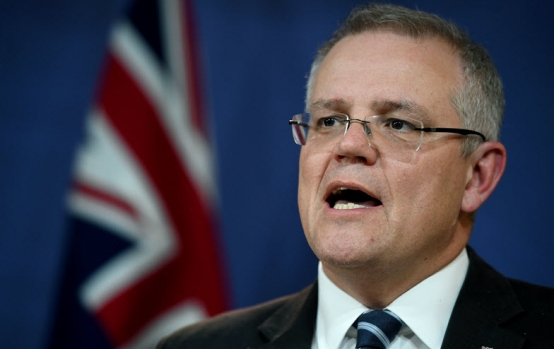
Aged Care is a pressing issue for many in the community and will affect most people either directly or indirectly at some point in their lives.
The problem is that the need for aged care often arises for first timers, with little notice and at a stressful time when emotions are running high, for both carers and the person in need of care, resulting in rushed and potentially inappropriate decisions which could prove very costly.
Relax … Take a deep breathe and CLICK HERE for:
While often difficult, having discussions with your family about estate planning, and how your assets will be distributed when you die, is so important. Here are just some of the key building blocks to consider when looking to create your own family succession plan.
Have a valid Will…
There are many problems that arise if you don’t have a valid Will – problems that can cause a great deal of distress to your family when you die.
A valid Will details in writing how you wish your assets to be distributed, and must be dated and witnessed by two people who are not your beneficiaries.
Not having a Will, or having one that is poorly worded, could mean that your assets won’t be distributed according to your wishes, as well as causing delays, additional costs and possible tax implications.
After establishing a Will, it’s also important to see it as a ‘living document’, one that should be updated regularly as your financial, health, lifestyle and family circumstances change.
Power of attorney…
A power of attorney gives a person, or a trustee company, the power to manage your financial and legal affairs while you’re still alive.
Giving someone you know the ability to make these decisions, rather than a court, gives you peace of mind that you’ll be taken care of when you’re no longer able to manage your affairs on your own.
There are different types of powers of attorney, which can also depend on which state you live in, so you should get legal advice on what best suits your situation.
By planning ahead before an emergency eventuates will give you and your family the opportunity to review all the options, which can help you to avoid a significant legal and financial burden should something happen.
Enduring guardianship…
Similar to a power of attorney, an enduring guardianship allows you to appoint someone that can make important lifestyle decisions, or approve specific medical treatment, on your behalf when you’re incapable of doing so.
Enduring guardianship is extremely broad, giving you and your family the flexibility to include the functions that are most important to you.
A person that’s well known to you and your family, but has no financial interest in your estate, is often a good choice to be your guardian.
Buy/sell agreement…
If you have a business partner, it’s important to have a strategy in place that will ensure your share of the business is passed onto your estate as quickly and as efficiently as possible.
One such strategy is a buy/sell agreement, which uses a life insurance policy to pay for the future purchase or sale of shares in your business.
These agreements are usually triggered by a specific event, such as disability or death, with the proceeds from the insurance policy helping to transfer the full value of your share in your business to your estate.
Get financial advice…
Estate planning is a very complex area, and one where it’s easy to make decisions that seem appropriate at the time, but can prove costly in the long run.
Engaging an experienced financial adviser will help you and your family to understand all of your estate planning options, and allow you to create a plan that meets your needs.
A financial planner will be able to help you with areas such as budgeting, cash flow management, a savings plan, superannuation, tax planning, home loan repayments, debt management and reduction, insurance, investments and retirement.
Understandably, your financial goals will change over your lifespan. You need a financial plan to suit the stage of life you are in. Here are some of the common needs of each life stage:
Your financial planner should make clear recommendations, outline the risks involved and communicate any possible strengths or weaknesses in your plan. Remember that your financial planner cannot predict the market or ensure investments are always favourable.
Your financial planner should however, keep you updated with any changes that could influence your investments, such as market slumps. While short term timeframes in regards to growth investment are a high risk, investing over a longer period of time means you can wait out the lows of the market.
Once your goals are decided, your financial planner will put a financial plan in place.
An investment in Peace of Mind
Most people do not hesitate to insure their cars and their homes but often fail to insure their most valuable asset of all; THEMSELVES.
Like most people you probably work hard to provide for your family and loved ones, but have you thought about what would happen if you were no longer able to earn an income due to accident, disability, ill health or death?
At emotional times such as this we don’t need additional stresses and finances should be the last thing on the minds of you and your family.
But, who would pay the mortgage and car repayments?
Will you be able to feed, clothe and educate your partner and children?
How would you meet the ongoing costs of medical care?
Could you afford to stop work if you suffered a major medical trauma or diagnosed with a terminal illness?
You may be pleased to know that personal insurance can provide you with the peace of mind of knowing that you and your family may be financially protected in case of adverse circumstances.
While life cover will allow your family financial security with a lump sum payment to cover things like mortgage, education and ongoing education costs if you die, there are also other insurance options to consider in case of a serious illness or accident and these include:
Unforeseen circumstance do crop up from time to time and unfortunately its only when something unexpected occurs that people realise the importance of protection, but by then it is too late.
You may be surprised to learn about the wide range of events that can be insured and that personal insurance cover may be cheaper than you think and in some cases may even be tax deductible for you.
Many people we speak to have no idea where their super is invested or how much they have invested. We find that people are disinterested because they mistakenly believe that superannuation is either something outside of their control, a poor investment or too far into the future to worry about.
The truth is, next to the family home, superannuation is probably the largest and most important investment you will ever have in your lifetime. The difference between poorly managed superannuation and well managed superannuation could be the difference between a retirement lifestyle of struggle or a comfortable and carefree retirement lifestyle.
It is important to understand that superannuation itself is not actually an investment, but rather a tax effective vehicle to hold investments of your choosing. The better the quality of investments, the better your performance and the better your retirement lifestyle. This is why it is important for you to take a more active role in managing your super.
That said, it can be confusing to many though, as superannuation has tended to become a bit of a political football.
Every year, it seems, they change the rules – the retirement age, the contributions cap and so it goes on.
No wonder many people I speak to are concerned about legislative changes being made to super – what they mean and how to work with them.
It is a cause for concern, but it helps to keep it all in perspective, give all the factors their due weight – but no more – and adjust your game plan accordingly.
That’s one of the things we do for our clients, and it helps them feel much more confident about achieving their goals – quite rightly.
We offer a range of other services so if you have a question feel free to click the link above and speak to us.

Advice Line Australia is a holistically based financial planning firm established in Perth since 1997.
In today’s busy world we recognise that finance, investment and legislation are becoming more intertwined and issues can be very complex and confusing for the average person. With this in mind, it is our goal to help provide you with clarity and confidence when unexpected situations or questions arise along your life journey, so feel free to ask questions if you feel we may be able to help you in these types of situations.
Whilst our service often starts with general advice, good planning involves so much more than this. We specialise in building sound, long term relationships, so that we can help people from all walks of life, to shape a better future and to keep on track to achieve their life goals.
We have a broad range of clientele, from high net worth individuals with more complex needs, to everyday families who we consider to be the foundation of our society, and younger clients who we can inspire to become tomorrow’s success stories.
When working with our clients we like to take a holistic approach and believe that financial planning is first and foremost about YOU and your individual goals and less about money.
Our philosophy is based on the notion that money should be considered a means to an end and not your sole objective. Life is so much more rewarding when you have clarity of purpose and therefore, our planning process involves listening, understanding and helping to define your short, medium and long-term life goals and objectives.
We then work with you to design and implement strategies that you are comfortable with, to help provide the necessary funding to achieve your goals and to then review your progress on an ongoing process.

If you are leaving your employer due to redundancy, you have a great opportunity to make a fresh start. Now could be the best time for you to think about a career change, become self-employed or consider retiring if you are close to retirement. But regardless of what your next steps might be, it’s important […]
READ DETAILS
One of the world’s most admired investors, Warren Buffett, is famous for saying “Don’t save what is left after spending; spend what is left after saving.” While this approach may not always be possible, investing even just a small amount regularly can make a big difference over the long term. If you are accumulating wealth… […]
READ DETAILS
There are many things to consider when starting a business, but if you are organized and not shy about asking for help, things will fall into place. Starting a new business is exciting but there’s a lot to think about and organize. Before you even begin, consider how prepared you are to make difficult decisions, work long hours, face financial constraints, lose sleep and confront failure.
READ DETAILS
If you’re organised with your finances, the high cost of living doesn’t have to mean diminished savings. The increasing cost of goods and services – from food and housing to transport and utilities – is a reality most Australians have to face every day. Data from the Australian Bureau of Statistics (ABS) shows that living […]
READ DETAILS
What the election outcome means for you? The federal election is done and dusted, and the Coalition Government has been given another three years in power. How will this outcome affect Australians’ finances? What will change – and what won’t – when it comes to policies affecting people’s money? Can we expect any surprises? The […]
READ DETAILSThe Importance of Insurance Planning
Case Studies
These are true stories of client experiences, however to protect the confidentiality of clients the stories are told by actors.
